Avoiding the crowds in Europe’s top holiday destinations is simple.
Living on Tenerife, a massively popular holiday destination, taught us many things about tourism. How touts outside restaurants can mysteriously identify which nationality you are before you open your mouth; why you should always ask for the menu in the destination’s natural language as well as your own; how it’s not just the British who seek familiar food, although I already knew that one before we moved. Whenever we visited one of the top tapas restaurants in Manchester it was usually filled with Spanish diners.
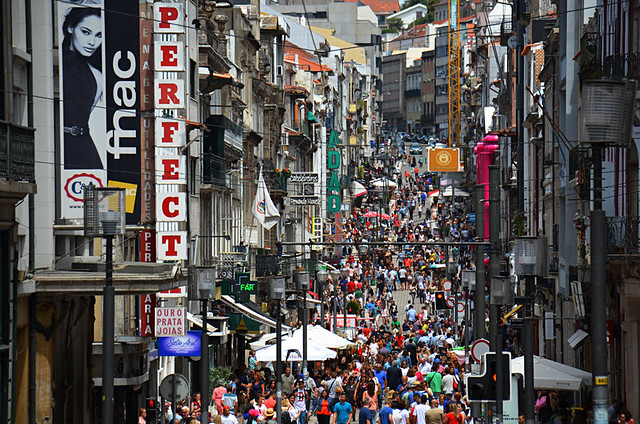
We also discovered that many visitors to a town/city, of all nationalities and whatever the destination, tend to have a herd mentality. They all follow the same beaten path… religiously. You can observe this everywhere. For example, watch the entrance to a busy railway station or shopping centre where there are a bank of doors but only one is open. The majority of people will squeeze through the same open door rather than move slightly to one side and try another door. It’s the same in popular holiday destinations. People follow the crowds rather than step to one side.
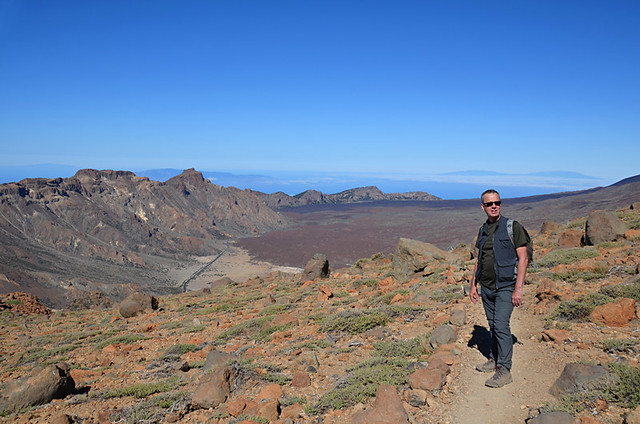
We’ve walked in Teide National Park on Tenerife many, many times. It’s the most visited National Park in Spain by a significant margin and the popular hot spots in the park are rammed with cars and visitors to the extent the Tenerife Government are considering plans to regulate access. Yet we walk on quiet paths, wallowing in the same scenery the masses are jostling to see, for two reasons. One, we ‘step to one side’. Two, we’re happy to walk that little bit further for a slice of solitude. The other factor worth knowing when it comes to escaping crowds is too many people want a big payback for the minimum of effort. They won’t walk further than they think is necessary. They step off a coach, walk a few metres to a viewpoint, take a few selfies, get back on their bus.
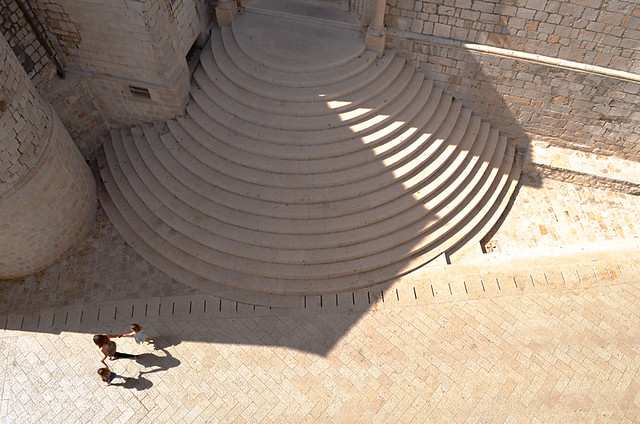
This summer tourism has taken a lot of stick in some popular destinations around Europe. But it’s nothing new. Dubrovnik was a nightmare in 2013… until we ducked up side streets and escaped the main herd. Passengers from cruise ships cause congestion problems in Dubrovnik, just like coach excursions cause the overcrowding in parts of Teide National Park. Both have something else in common, the people on them are on a tight schedule. They simply don’t have time to ‘explore’. Subsequently, they follow the most popular routes. Once you know what these are (not difficult to spot) you can easily avoid them.
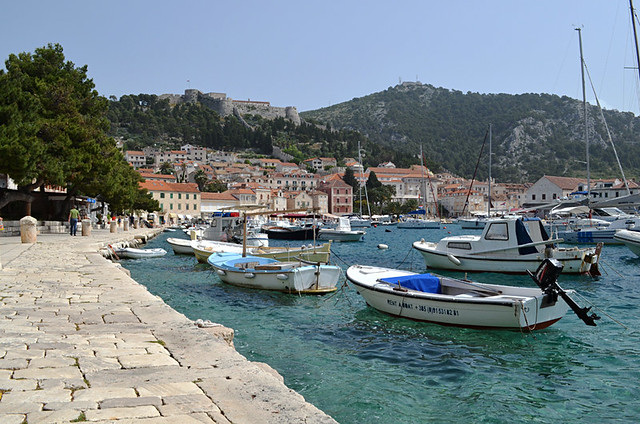
Hvar has gained a reputation as being a party island, ruined by the behaviour of pissed up young Brits. Yet we had one of our most magical travel experiences there and saw none of the antics sensationalised by the UK tabloids. We simply avoided the area where the partying takes place. Our memories of Hvar Town are of a friendly, picturesque, historic town with quaint restaurants.
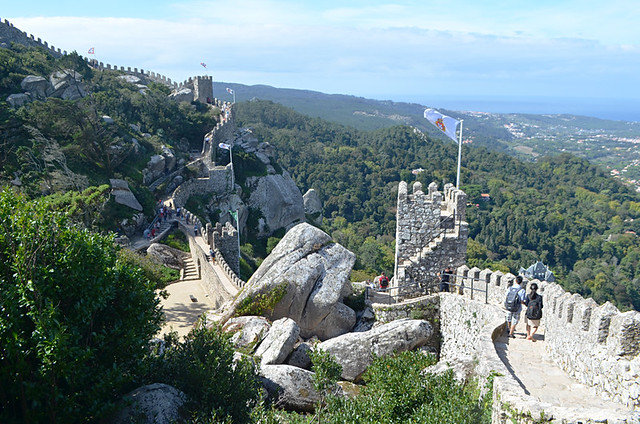
In Portugal we squeezed into trains bound for Sintra, alighting with an army of visitors in the town of palaces, many of whom didn’t make the effort to climb to the Moorish Castle on the hill overlooking the flamboyant town.
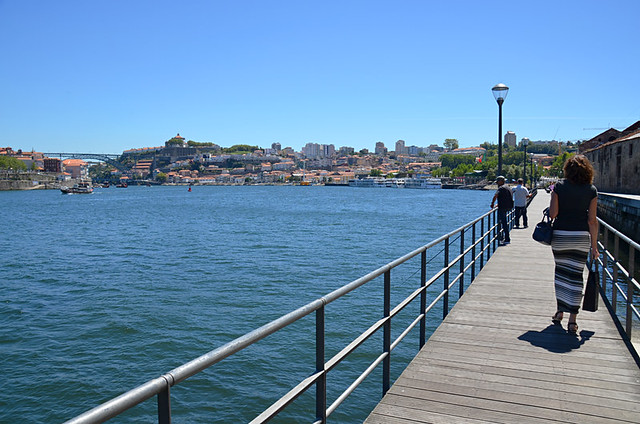
Recently in Porto we were surprised at just how much the tourist population had grown. It was August, the height of the summer season, and the south bank riverside was so busy it claustrophobic. But Vila Gaia de Nova on the north bank offered both a more tranquil scene as well as some of the best views of the city. In Lisbon a few days later, Rua Augusta was its usual crowd magnet, yet parallel streets were relatively people-free. I can’t understand why people still choose to eat on Rua Augusta, but the restaurants along it remain packed.
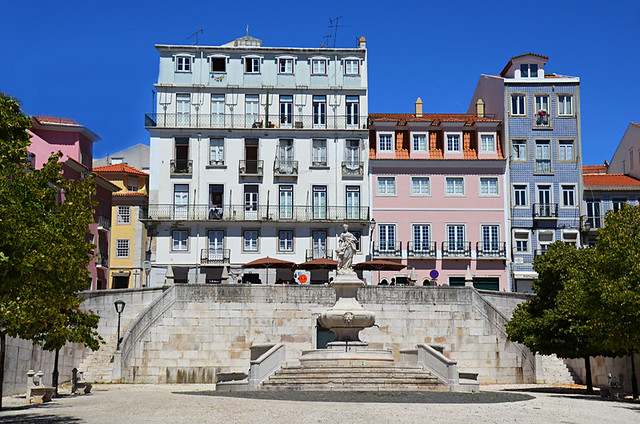
Many people simply stick to the well trodden routes.
Obviously there’s no way to escape crowds when it comes to seeing the most popular attractions. It’s a price which, quite rightly, has to be paid. Popular attractions are popular attractions for a reason, and everyone has the same right to enjoy them. But this is where the difference between whether you visit a location as an excursionist or independently is crucial. To excursionists, cities consist only of series of attractions; a tick list. To independent visitors the city canvas spreads far, far beyond a selection of interesting landmarks. Whereas excursionists have to follow their guide and stick to a schedule, independent visitors have the luxury of time to be able to make their own tracks. Incredibly some independent visitors follow the exact same paths as excursionists.
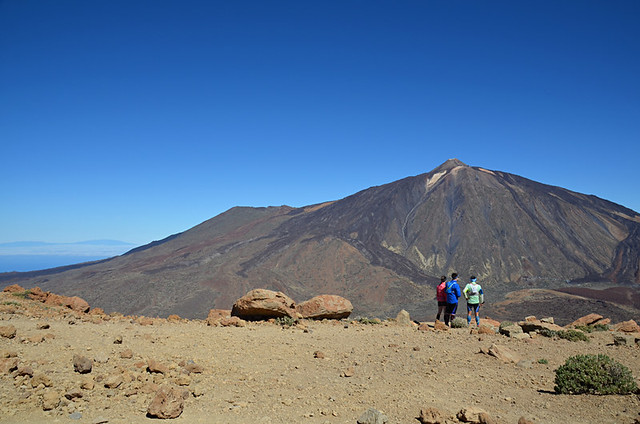
Basically, the solution to avoiding crowds in Europe’s top holiday destinations is simple. Be a lone wolf rather than a sheep.
Jack is co-editor, writer and photographer for BuzzTrips and the Real Tenerife series of travel websites as well as a contributor to online travel sites and travel magazines. Follow Jack on Google+




Be the first to comment